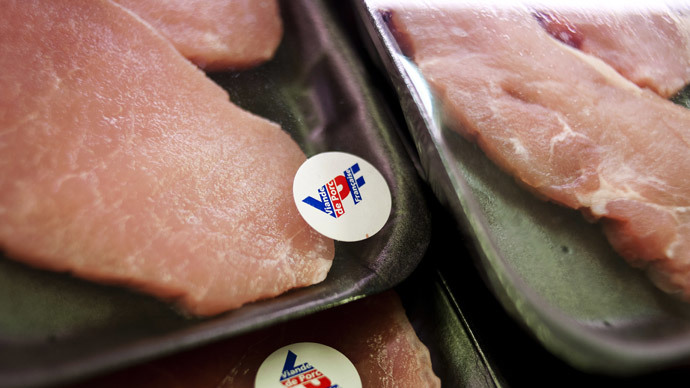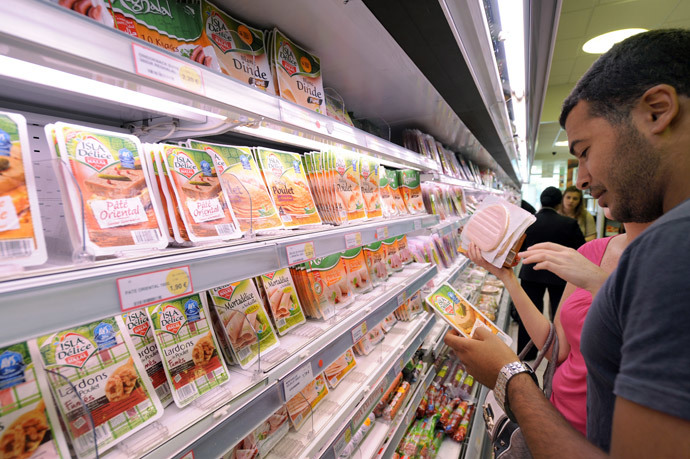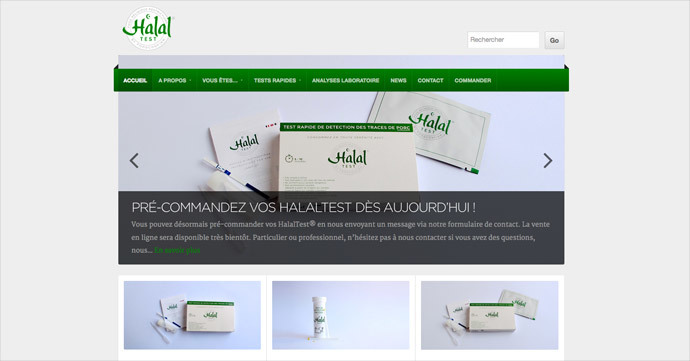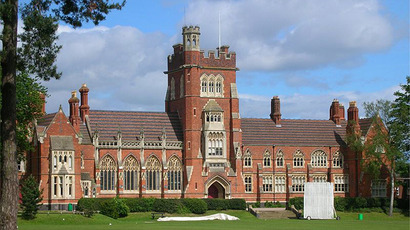French ‘Halal test’ detects presence of pork

A new kit has gone on sale in France to detect the presence of pork or alcohol in various produce. The ‘Halal Test’ is aimed at the Islamic market and claims rapidly to detect the presence of pork in any meal.
The demonstration video directs that a piece of meat - for
example, a sausage - is placed in a small flask and a few drops
of hot water added.
“The appearance of two red lines means that we have pork
present,” says Abderrahmane Chaoui, one of the product’s
creators, as he conducts a video demonstration, displaying the
finished test.
This means that the product has pork cannot be consumed by
Muslims as pork consumption is outlawed by the Koran, whereas one
bar means that pork is not present and meets Islamic consumption
standards.
The product is the brainchild of Chaoui, 25, and his classmate,
27-year-old and Jean-François Julien.

The ‘Halaltest’ can be used not only with meals but also with beverages, cosmetics and pharmaceuticals.
“Pork is the subject of a strict ban, as well as alcohol,” Chaoui stated, according to Le Nouvel Observateur.
It can be ordered individually for €6.90 (US$8.80) per packet or a pack of 25 tests, for €125.
Eventually, the company – despite being in its germinating stages – hopes to modify the test so that it is possible to recognize whether the animal from which the meat was obtained was slaughtered according to Islamic ritual, “based on blood oxygenation.”
This means that the test would truly become a test to see whether all meat was halal, rather than just directly outlawed.

“Products bearing the 'halal' stamp have emerged over the past 15 years…but consumer vigilance has increased recently,” Choui explained.
France’s Muslim population reached an estimated 6.5 million in 2013 and there is likely a big market for such a product, especially in the wake of Europe-wide horsemeat scandals.
Additionally, at the beginning of 2011, sausages labeled as Halal
by company Knacki Herta had to be withdrawn from supermarkets
after tests demonstrated the presence of pork.
Also a test to detect allergens in food is coming “in a few
weeks.”
“In a few weeks we will launch another range of products
under the brand Confirm Food, for early detection of traces of
allergens,” Chaoui also told BFMTV.com.














